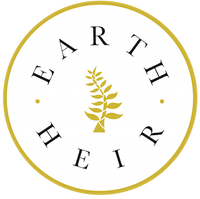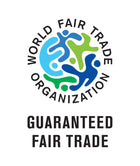Written by Xiao Cheng Wong, COO of Earth Heir.
February 2018 is ending, and what did I learn in the first 2 months of 2018? Here are some lessons from a project we completed:
Recently, Earth Heir made 516 pieces of handwoven rattan baskets for a Chinese New Year hamper project. I must say that we underestimated the complexity of handmade rattan bags, in large quantities.
1. Diversifying speeds up production.
To deliver 500+ pieces of handmade, customised rattan bags, it would be best to have at least 5 months lead time.
For this order, we had 4 months, which would have been workable. Yet, we had over-relied on one artisan group - this group informed us last minute that they would not be able to fulfill our order. Within the short timeline left, we worked on the skills development of various artisan groups to make consistent products. We distributed the work, re-distributed them and finally transported all the pieces from all over Malaysia.
Because of this, I traveled to many villages to search for and meet our artisans alone. Some places were rather scary (at least for me) to be in alone as a female.
When I drove to meet our new artisans in a village (Hi cows!)
2. Consistency comes from managing and communicating expectations with clear specifications.
What one artisan thinks is best is not the same for another, even when they have a perfect sample to compare with.
We worked with 5 groups of artisans across Peninsular Malaysia for this order. I realised that artisans' perceptions of quality are very subjective. For consistency sake, we had to reject countless pieces of baskets for various reasons: size of rattan fibres, types of rattan, final feel of the product, finishing of the product etc.
tc.
Can you tell why were these baskets rejected?
3. Manage logistics better with lower costs.
For this order, due to it's short timeline, delivery of the final products were done in a few batches. Since Earth Heir doesn't own a van or a truck, I delivered all 516 baskets with my Perodua Myvi to the client (twice with my colleague's car).
Baskets are light, but they are bulky. This means courier services would have charged the volumetric rate, costing us a lot more. We settled for my car for this order, but for future orders, I believe we will be able to arrange for more efficient delivery with more products per batch (bigger car maybe!).
My car with baskets, this was almost every week
4. It was worth it in the end.
At one point during this project, I cried. I cried because an artisan yelled at me angrily due the complexity of the project, but also due to some personal issues she was facing. In the end, we reconciled, as we both understood it was due to the tight timeline. We knew that our goal is to work together to showcase the great craftsmanship from Malaysia.
As for social impact? 1 of the artisans earned 8 months worth of income in 4 months, and we have established a much stronger friendship with him. A younger group of artisans grew from failing to deliver, to meeting their own goals. In the end, they managed to make consistent and good quality pieces.
Our client's feedback to us was that although the cost was higher for this hamper range, their sales were much better than the previous years. This means people actually value good quality products made in Malaysia. They are willing to spend a bit more for natural baskets that they can actually reuse. And that alone, makes all our effort worth it.
Final product shot taken by the client
March 2018 and onwards.
I am excited for more learning opportunities! As for now, we are ready to take on orders for few hundred or even thousands of handmade bags! (But please give us enough lead time!).
Signing Off,
Xiao Cheng
COO, Earth Heir













